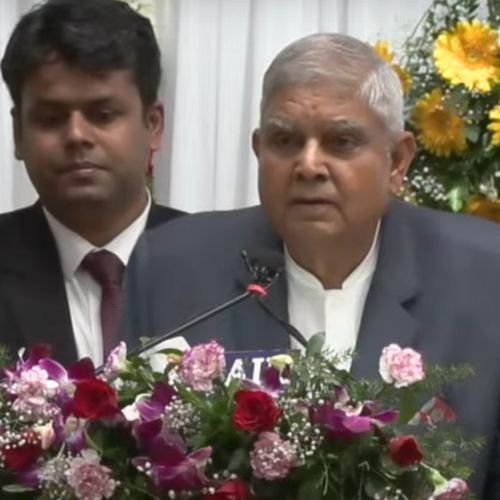Vice President Jagdeep Dhankhar, during his visit to Pondicherry University on June 17, made a compelling call for linguistic unity in the country. Addressing students, faculty, and dignitaries, he urged citizens to see India’s rich language diversity as a strength rather than a cause for division.
“How can a country as great as India, which is on the rise globally, afford to be divided on language?” Dhankhar asked, calling on the youth to move past linguistic disputes and focus on the larger goal of national growth and harmony.
Eleven Classical Languages, One Spirit
In his speech, the Vice President celebrated India’s linguistic heritage, noting that the country is home to eleven officially recognised classical languages—such as Sanskrit, Tamil, Telugu, Malayalam, Kannada, and Odia, among others.
He emphasized how the Indian Parliament allows members to speak in 22 languages, a testament to the nation’s inclusive governance.
“This is not just symbolic—it reflects our respect for every culture and identity within our borders,” he said.
NEP 2020: A Vision for the Future
Dhankhar also used the platform to advocate for the full adoption of the National Education Policy (NEP) 2020, calling it a “game-changer” for India’s academic landscape.
He encouraged states that have not yet fully implemented the policy to take steps toward doing so.
“It’s flexible, student-focused, and it gives importance to both skills and values,” he said.
The Vice President especially highlighted the need to organise workshops that can help students—particularly young girls—understand the opportunities NEP offers.
A Gentle Warning Against Divisiveness
In addition to promoting policy and unity, the Vice President voiced concerns over what he described as a growing “confrontational attitude” in some parts of the country, especially when it comes to sensitive subjects like language and education.
“We must reflect carefully. Political confrontation over culture and education only derails progress,” he cautioned.
He added that disruption, whether inside Parliament or in the public domain, works against the ideals enshrined in the Indian Constitution.
Students Respond Positively
The audience at Pondicherry University, which included scholars from diverse linguistic and regional backgrounds, received the speech warmly. Many students later said they appreciated the emphasis on inclusion and the call to look beyond regional identities toward a more united national perspective.
ALSO READ: Parliament Panel On External Affairs Reviews India’s Maritime Policy After Global Outreach Tour



